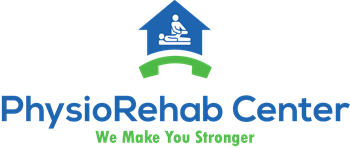
Since teenage years are the most critical years of life, it makes sense to pay more attention to physical, cognitive and biological health of kids.
Parents can do it all – provide them with nutritious food, sign them up for all sorts of sports and activities, so now is that time to consider taking their physical health to the next level, with physiotherapy.
Below we detail a few key reasons why this is a very wise idea that your Teenager Can Benefit from a Regular Visit with a Physiotherapist
1. Teenage Growing Pains
While growing pains typically affect children (both genders) between the ages of 3 and 5, and from 8 to 11, some may continue to experience growing pains into their early adolescent or teenage years. Even though it’s an essentially harmless form of muscular pain, it can certainly cause discomfort during an already awkward time of one’s life. Thankfully, physical therapy can assist in easing this discomfort. Once a visit to the clinic has diagnosed growing pains, a range of treatments can be done. The primary aim here is to reduce pain by reducing inflammation and improving your teen’s muscle flexibility. This can include soft tissue work and a stretching regime to lengthen tight muscles. In addition, mobilization of stiff joints may be necessary if deemed to be a contributing factor to reduced flexibility.
2. Prompt Attention to Injuries Sustained in School (or other) Sports
Your teen is likely involved in an extracurricular activity, be it a school team or community youth league. At some point, they will sustain some form of trauma. This more often than not comes in the form of a sprain (from playing basketball, etc.), but of course can be worse. Physiotherapy can serve as a reactive and highly effective means to treat these cases.
Common Sports injuries in teenage:
The following list isn’t exclusive but simply represents the most common sports encountered. Some injuries are common to all of the sports but some are more likely to be seen in certain sports.
- Shin pain is more likely to be seen in Netball and Hockey.
- Heel pain is seen in Rugby and Hockey.
- Shoulder pain is seen in Racket sport and Swimming.
- Back pain is seen more in Rugby, Cricket and Football.
- Thigh and Hamstring pain is more commonly seen in Football.
It’s not uncommon for teenagers to suffer broken bones in contact sports, think fractured Collar bones.
Dislocated shoulders are not unusual and knee ligament damage is also a frequent unwanted outcome of the rugby or football season.
And while your family doctor will likely suggest a follow-up with a physical therapist after the injury has been treated by them or in the ER, there are some cases where this may not occur. For instance, given the common nature of sprains, your teen may brush off the need to visit the doctor, and opt to tough it out. They can be stubborn that way, and you may trust their judgment. However, by neglecting to properly treat a sprain, your teen could be setting the table for more concerning complications to the impacted body part (and function) in both the near and far future.
3. Prevention of Injuries Commonly Sustained in School (or other) Sports
Seeking physiotherapy as a reaction to your teen’s sustained injuries is one piece of the puzzle. But wouldn’t you prefer they avoid injury in the first place? By making physiotherapy a part of their normal health and wellness regime, you will effectively help them avoid some of the common injuries sustained in sports.
If your teenager partakes in any of the high-risk activities detailed here, you will want to consult with your local physical therapy clinic, which will work to improve their overall body function and range of motion, and ultimately reduce their risk for injury.
4. May Help Ease Teen Angst and Anxiety
Unfortunately, teens are highly susceptible to stress and anxiety. The pressures of school, home life, and social life weigh heavy on them. While as parents, you want to be the one to help solve all of their problems, it often takes an outside resource to help do so. While these therapeutic resources can vary, physiotherapy may have a positive impact on anxiety. The role of physiotherapy (including exercise and massage) in the management of anxiety disorders is becoming increasingly recognized. Even more skeptical analysis of the matter shows that an increase in bodily awareness of sensations, to sense and make sense of anxiety when receiving treatment, becomes an opportunity in itself to find ways to withstand and to manage symptoms of anxiety.
So before you chalk up the moodiness to teen angst, it may be worth looking into physiotherapy as a means to help ease the stress and anxiety felt by your teen.
5. They Will Develop a Far Better Understanding of Their Body as They Head into Adulthood
All of the above will help serve one ultimate and all-important goal. Your teen, who is at an age where they are highly capable of digesting information (whether they like it or not), will learn more about their body and how it works, quite possibly better than they will in a traditional classroom setting. When working with a physiotherapist, they are experiencing the application of the various disciplines within the umbrella of the practice. They can become familiar with everything from core fitness, manual therapy, massage therapy, athletic taping techniques, orthotics and all else in between. This applied knowledge
will serve them well as they grow from their teenage years into adulthood. And who knows, they may even be inspired to become physiotherapists themselves one day. What parent wouldn’t be proud of that? At least that’s what our folks tell us…
As with physiotherapy for adults, treatments for teens are very focused on the individual person’s needs and the goals that they need to achieve to recover or reduce their symptoms.
Physiotherapy for teens can involve exercises and stretches, manual therapy, Pilates, acupuncture, and many other kinds of treatments. All of these programs are individualized, so your teen always gets the specific support they need.
Reach out to PhysioRehab Group today to discuss whether your teen might benefit from physiotherapy.


Recent Comments